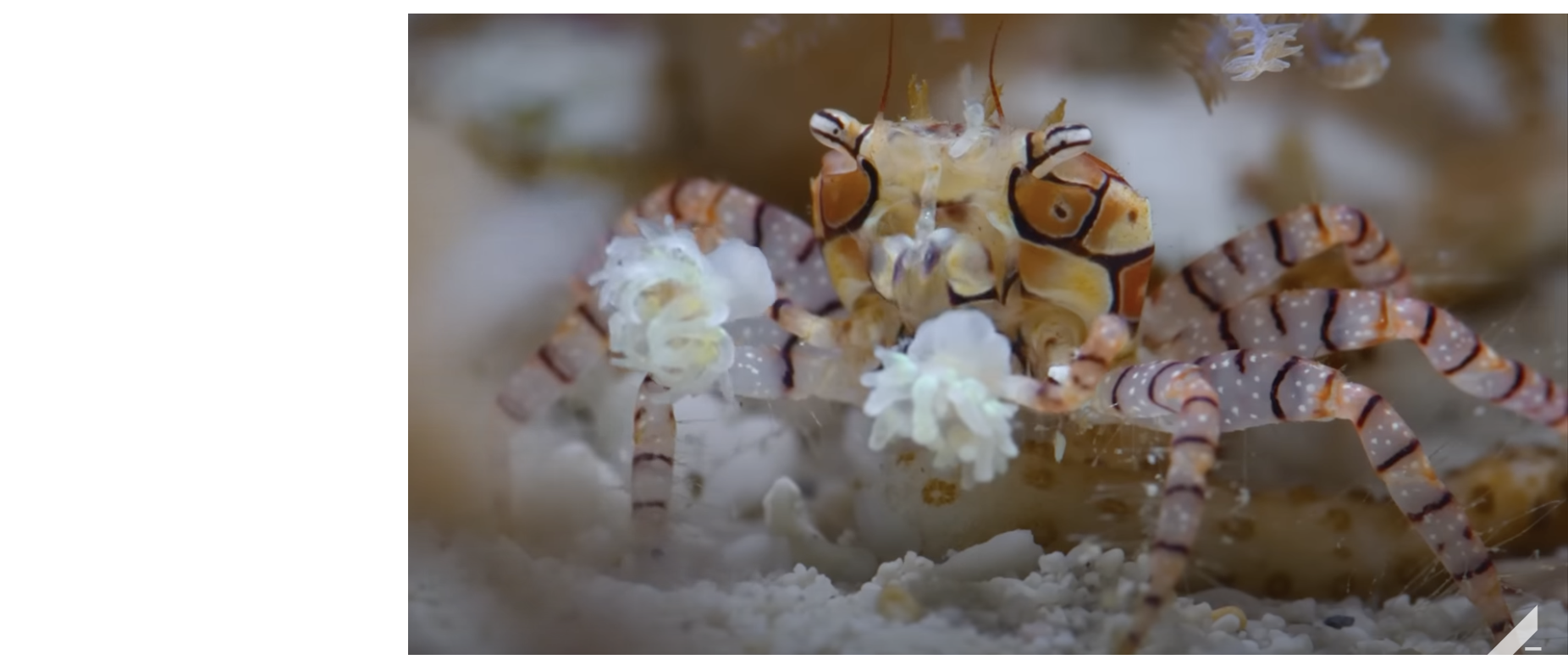The ocean floor is often referred to as the last great frontier – dark, mysterious and menacing all at once. And in my recent research on the arguments and frames used in climate communication, I found that the devastation caused by the rising levels of this shadowy frontier looms large, adding to its perceived menace.
But the new documentary Ocean, narrated by David Attenborough, turns on the light, dispels the shadows, and reveals a habitat just imperilled as the land above.
Backed by spectacular visuals, Attenborough’s wonder-filled voice guides us through miles of ocean floor. He takes us through kelp rainforests, and three-mile-high sea mountains, that host vibrant underwater worlds – bustling societies of marvellous living beings whose lives are so intricately connected.
(Shout out to the boxer crab that uses poisonous sea anemones as its gloves!)

As Attenborough describes it, their lives, much like ours, are so intricately woven together that should one of the species fail, the whole fragile ecosystem begins to wobble, then crumble.
A win-win
One of the greatest threats to these wondrous worlds, as depicted in the documentary, is posed by ruthless fishing trawlers. Their sharp talons claw indiscriminately through these delicate eco-systems that have perfected themselves over thousands of years, leaving carnage and a desolation in their wake – an echo of the desolation we witness in the wake of razed rainforests.
Despite the bleakness, the documentary does remind us that the ocean has one remarkable ability: it heals quickly.
All we need to do is leave it alone. Just for a few years.
We’re repeatedly reassured that we don’t need to stop fishing altogether. Instead, as more than one fisherman in the film emphasises we need to respect and work with the ocean. This may not be a quick fix for the rising sea levels, but it will help. Healthy marine life in a healthy ocean absorbs large amounts of carbon – even more than the rainforests on land. As David Attenborough concludes: If we save the sea, we save our world.
A win-win, no?
How can we help?
I won’t lie, it wasn’t an easy watch. Nor should it be. This is just where we are. But since I was in a theatre there was no looking away. Often, after watching something like this, I feel helpless and wonder what I can do. So, I swear off this and that. But this film offered many hopeful moments. One that struck me was how important the small, often invisible beings and actions are.
Take, for example, the nondescript phytoplankton – it’s no glamourous boxer crab, I’ll give you that. But the whole ecosystem relies on these microscopic creatures, and they absorb billions of metric tonnes of CO2. And unknowingly (at least for most of us), we rely on them too.
And it’s from these micro-organisms that I took hope: every living being, every action we take is important, and does matter in the grand scheme of things.
Concrete action
So, if you’re looking to act, you could sign this petition: https://only.one/act/bottom-trawling (sourced from: Enric Sala)
The documentary is campaigning for 30% of world’s oceans to be preserved from exploitation in anticipation of the UN 2025 Ocean Conference in June, now just about 3% is protected. The film was produced by Silverback films and Open Planet Studios, and directed by Toby Nowlan, Keith Scholey, and Colin Butfield.
